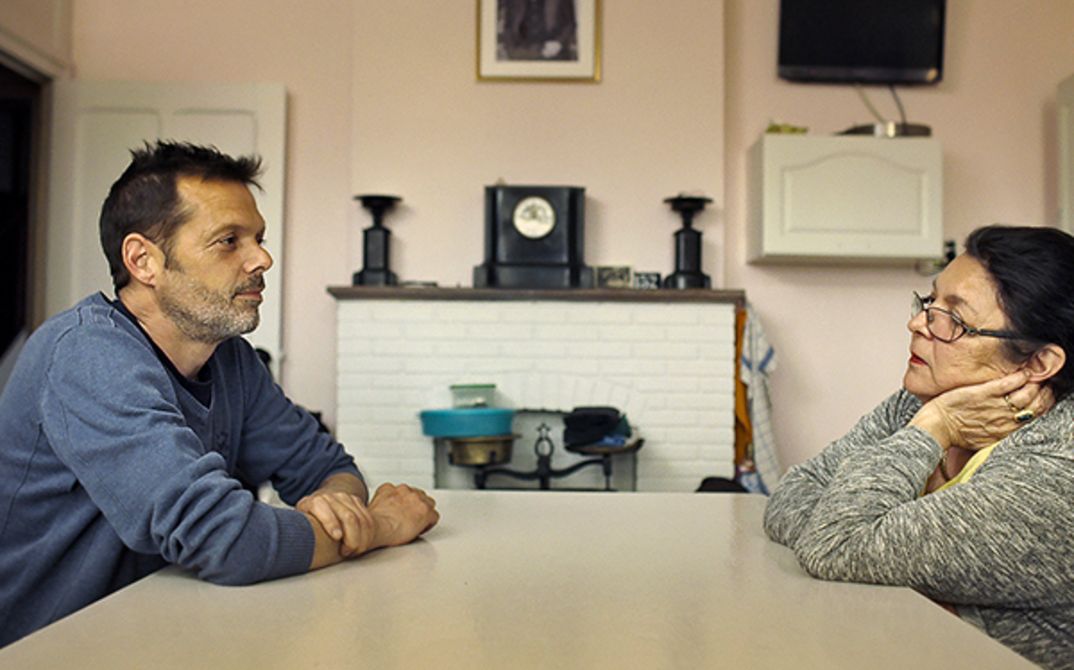75 min. French.
Damien Samedi lives in a village in Wallonia. He works from time to time as a gardener and has a close relationship with his mother. Everyday life in the village, which has seen better times, Samedi's quiet and friendly nature and the still largely intact rural setting stand in stark contrast to the heroin addiction Samedi has suffered from for over 20 years, which only his family knows about. His relationship with his mother changes when he makes another attempt to get clean. Paloma Sermon-Daï’s documentary paints a restrained, highly precise picture of a relationship marked by affection and love but which is also difficult to define in relation to Samedi's problem. As the camera observes the long, concentrated conversations he has with both his mother and his therapist, a picture of addiction comes into view which is part of a family structure. This becomes embedded in something larger in turn via the individual images of the village. Petit Samedi creates an image of dependence in which individual, family and social coexistence are intertwined, without falling into the trap of saying what might be able to solve the problem. (ab)
Paloma Sermon-Daï was born in Namur, Belgium in 1993. From 2005 to 2012, she attended the Athénée Royal Jean Tousseul in Andenne, followed by a bachelor’s degree in Cinematographic Technique at the Haute École Libre de Bruxelles Ilya Prigogine (HELB), which Sermon-Daï completed in 2016. Petit Samedi is her first feature-length film.
